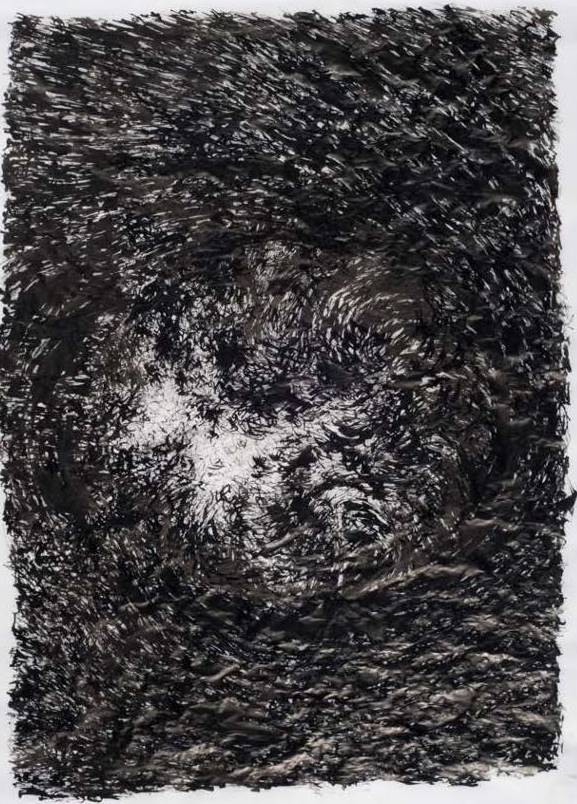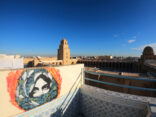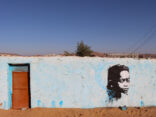Autore
Indice
- Introduction
- Who asks, and whom to ask
- When and where to ask
- How, how much and why to ask
- What to ask each other
- What the philosopher asks
- What the scientist asks
- Some particular questions
- Conclusions
↓ download pdf
S&F_n. 24_2020
Abstract
Science & Philosophy: an Interdisciplinary and Interpersonal Interaction
Asking oneself what the scientist asks of the philosopher, and vice versa, allows us to set the question of interdisciplinary relationships in a new and intriguing way. Before entering into the merits of the question, it is opportune to methodologically set up the relationship between philosophy and science: that is, not as an abstract relationship between disciplines, or as the establishment of conceptual systems, but as an interpersonal relationship; it is a lively interaction between men and women, professionally devoted to these disciplines, who at the same time believe in the possibility of an enriching dialogical exchange. The disciplines themselves can be seen as real corpuses, incorporated and incarnate in scientists and philosophers; as such, they account not only for the discovery and arrangement of real entities, lexical terms and conceptual constructs, but also for their social and historical character, their impact on the scholars themselves, their risks and benefits. Besides, once our reflection is set up like this, it is also natural to expand it in other directions, almost following the method of a journalistic investigation: who, where, when, how and why to ask? As for what to ask, it is above all important what specialists can ask and expect from each other: first of all patience, trust and willingness to enter the others’ world, in their way of proceeding, looking not so much for the inescapable maculae caecae but for their epistemic fecundity, recognising both the autonomy of the individual disciplines and their reciprocal influences; secondly, rather than stopping at the surface, with its semantic stumbling blocks and verbal skirmishes, it is preferable to dig deep, go straight to the generative core of the disciplines, certainly prodding and asking for clarification, but also allowing oneself to be provoked and changed in the encounter; finally, this (etymologically) methodic, synodic, and diasporic work must be put at the service of a humankind that needs and desires both scientific and philosophical knowledge and wisdom: because basically this exchange is not only a question of pragmatics but also of ethics, of an ethics of human relationships to be educated and cultivated. Only in this way, the & of Science & Philosophy will not be the mere shorthand sign of a hasty intertwining of disparate elements (the letters e and t), but the symbol of an interaction that is as interdisciplinary as it is interpersonal.
-
Introduction
What does the philosopher ask of the scientist, and what does the scientist ask of the philosopher? Here is a question that is impossible to answer, for many obvious reasons, some of which will be dealt with in what follows. Yet, among the various ways to approach the relationship between scientists and philosophers, asking what the former ask of the latter, and vice versa, is undoubtedly an original approach.
The intriguing question can be immediately divided into its components. If at first sight the most important aspect is the what, it seems important to reflect first of all on the asking itself. In fact, not only the what depends on the vexata quaestio of the definition and delimitation of philosophy and science[1], but also on the specific needs of each scientist and philosopher.
The issue of asking can be stated in various ways, along the following gradient: what does science ask of philosophy (understood both in a descriptive and normative sense, and also as genera proxima of many species of science and philosophy)? What does the scientist ask to the philosopher? What does a certain scientist ask to a certain philosopher? And finally: what do I, a scientist, ask of you, a philosopher? The first two questions are posed in impersonal and ahistorical terms, while the others involve the experience of individual specialists in their personal historicity, at least because questions and interlocutors often change during the course of one’s professional life.
The asking then lends itself to being expanded, almost following the w-question of a good journalistic piece: not only what, but who, when, where, how and why to ask? The question can then be extended in different directions: what to ask of reality, philosophically and scientifically? What kind of questioning is being carried out? And what does a certain society ask of the philosopher and scientist?
So, before dealing with the matter, let us try to reflect on this multifarious asking.
- Who asks, and whom to ask
The question of the who has two aspects: who asks, and whom to ask.
As for the first, it would seem at first glance that certain specialists are – by the very nature of their discipline – more inclined to an exchange: the cosmologist more than the entomologist, the bioethicist more than the logician. However, the question does not depend only on the subject that is being studied, but also on a certain sensitivity or personal propensity: for example, a cosmologist can safely limit himself/herself to his/her redshift measurements, whereas an entomologist could well enquire the concept of species infima, the dialectic between insect and environment, or the mereology of tagmata and metamers; an emblematic case, in this sense, is that of Darwin, who accompanied almost every his observation with a question at least in general biology, if not in ontology[2].
Secondly, whom to ask, with whom to confront? A first problem is, for scholars of the one discipline, to identify the boundaries of the other[3], and to judge the value of the concepts they encounter. Just to say, how can a biogeographer establish where philosophy ends and wild speculation begins, which is a controversial question already among the philosophers themselves? Therefore, in the best case he/she will ask him/herself: Lacan, psychoanalyst, philosopher or charlatan? The Seven Wise Men and the African griots, philosophers or paremiologists? Another problem is that a scientist is rarely aware of the internal articulations of philosophy, and vice versa: how many bacteriologists know of the debate between analytic and continental philosophy, or of the Confucian schools? And how many philosophers are at least aware of the existence of disciplines such as helioseismology or femtochemistry? A third question obviously concerns the boundary between science and philosophy: if it is clear that phytopathology is a scientific discipline while theoretical philosophy is in fact part of philosophy, there are large areas of uncertainty: how much ethics is hidden in scientific medicine, in social medicine or in the medical arts-sciences tout court? Does not philosophical aesthetics, in addition to having heavily drawn from art criticism and theology, have perceptual and neurophysiological implications too? Does not comparative linguistics, which shares its methods with textual stemmatics on the humanistic side and with evolutionary cladistics on the scientific side, also deal with categorical classifications, and therefore with ontology? Faced with such questions, with this general asking that precedes what to ask in particular, it will often happen that a scholar – in the concreteness of his/her everyday work – addresses his/her questions to the bioethicist or botanist he/she personally knows and esteems; therefore he/she will obtain, however objective the interlocutors may be, answers conditioned by their particular points of view; indeed, both philosophers and scientists – especially if academics – will hardly provide general opinions, since usually the more one specialises, the less he/she will risk leaving his/her limited field of study.
The issue of the who can also lead to reformulating the initial question: what do you scientist, or you philosopher, ask? What do I, a scientist, ask of you, a philosopher? This I, this you, are vectors of a density which cannot be light-headedly dismissed; in fact, they introduce us to the personal dimension of the asking, in which – at least implicitly – aspects otherwise bound to remain in the shadows come into play: the I and you involve us not only as specialists or professionals, as philosophers or scientists, but also as intellectuals, as members of a society, and as human beings[4].
But if this asking is rooted and grounded in our human experience, we can then come to a final question: what do I, a scientist or philosopher, ask of my discipline?
What have I, a scientist, asked and what do I still ask of science? When I started to discover it, when I was fascinated by it to the point of devoting my career to such Beruf[5], what did I aspire to, what did I want to draw from it? Certainly, upstream and behind a career choice there are psychological and social aspects, sometimes even a certain intellectual pride or demiurgic hubris. And yet, the answer will still involve – pace Weber – that thauma for the complexity and subtleties of reality, that desire to know and delve deeper which ultimately is a form of love: a love that partakes of the character of eros and philia for the scientific episteme.
Similarly, I, a philosopher, what do I ask of philosophy? It is often said that people expect philosophy to give answers, yet get just more questions from it; though this may be the case, the philosophers have nevertheless conceived subtle analyses and grandiose syntheses, rational and intuitive methods of investigation, paths of humanisation and desperate nihilisms; and whoever approaches philosophy wants to deal with such stuff, only moved by the philia (and eros and manía) for sophia.
- When and where to ask
Speaking of when to ask, at first glance one would brutally observe: when does one ever ask? Ars longa vita brevis, hence when does one ever have time, energy and desire to ask? Usually, scholars have so much to do with their intradisciplinary issues that they have no time to attend other departments, bothering their colleagues with slippery interdisciplinary questions. Moreover, today’s specialisation implies that les neiges d’antan of a Lucretius or Kant have gone, maybe forever[6]: mastering philosophy and science today is unthinkable, if not in the very general terms of an extremely presbyopic gaze, like that of the elders; only an old priest (presbyteros) could be the bishop (episkopos) of churches so rich in denominations (and sects).
And yet it happens: there are always small contact surfaces, junctions that articulate and dynamise the disciplinary segments, networks of mutual interrogation and exploration. Two situations are rather common. On the scientific side, the scientist goes to the philosopher much like he/she goes to the doctor; that is, when something goes wrong, when a conceptual malaise requires to distance oneself from the observational and experimental work, when a double slit experiment challenges centuries of physics[7]. On the other hand, the philosopher pokes his/her nose into science if he/she senses that there are conceptually and theoretically relevant aspects, when he/she judges that the criterion of encephalic death requires a complement and a supplement of ethical reflection[8]. In some cases, it is even difficult to assess if one is within science, philosophy or some other field, as when a barber with strange tastes undermines the very foundations of mathematics[9]. That is, little grains of sand often block the gears, sometimes requiring routine maintenance, other times triggering the famous or notorious scientific revolutions[10].
It is more complex to gauge the impact of external problems on the interaction between science and philosophy: can a stressful social situation be enough to induce philosophers and scientists to join forces? And what could be the flag to close ranks around? One could think of rationalism, were it not for the abundance of irrationalist philosophies; moreover, irrationalism raises its forehead precisely in moments of crisis and doubt, when rationality seems to give no answers[11].
Finally, one can ask what is the locus naturalis for the encounter between scientists and philosophers. Certainly there are already many official venues for interdisciplinary meetings; besides, there looms a widespread feeling, if not the conviction, that some form of intellectual exchange is not simply a corrective to high specialisation, but can enrich one’s disciplinary baggage, opening new avenues of research and understanding. However, if we take seriously the experiential and existential side of the asking, perhaps the formal and academic environments are not the most suitable ones, with their mixture of intellectual and material interests, with the will to promote one’s own disciplinary field (and the relevant research funds) alongside that of knowing, with the desire to propose original ideas held back by the fear of compromising one’s scientific credibility, and so on[12].
It therefore seems important, starting perhaps from the tables of congress social dinners, to find or create apter situations, which be at least tolerant, but better still encouraging and supportive, offering the possibility to participate in a conversation as rich as it is delicate; that is, while one can always find a habitat where to survive, the ecological niche is established through one’s own presence, and shaped by one’s way of living and living together[13].
- How, how much and why to ask
Every specialist nourishes a just pride in his/her own discipline, and aspires – to put it in Pauline language – to the highest professional charisms[14]; this must be recognised, and not as an excuse for a human vice, but because it is right to believe in what one does, and to cultivate a taste for good and well done work. The problem, if ever, arises when one gets entrenched in a disciplinary pride deaf to every other voice, pompously satisfied with one’s method, unable to question one’s principles and contents; apparently less annoying, but basically equivalent in its results, is the condescension of the disciplinary monarch who asks for everything, gets informed about everything, but actually listens to none; and it is sometimes legitimate to doubt the honesty of those self-styled Socratic gadflies who already have the conclusions of their pseudomaieutic interrogations in their pockets.
But then, how should we ask? What does it mean to ask charitably? In the interaction between two disciplines, we can distinguish – so to speak – an aliodisciplinary from an alterodisciplinary approach. In the first case, the idea is that of a discipline other than mine, alien and incomprehensible, exotic and esoteric, and ultimately hypocritical, false and parasitic on the taxpayer; in the second, on the contrary, we are faced with another discipline, different but translatable, unfamiliar but exoteric, and ultimately authentic, sincere and helpful to society. In a certain sense, an anthropological and culturalist approach to the other disciplines is needed, which obviously opens up the difficult problem of anthropological enquiry, which can only be hinted at here[15].
As if he/she were an ethnologist, the specialist of one discipline can approach the other with an etic or emic approach[16]; this latter, which elicits the greatest interest today, in our case looks like this. First of all, since the idea of a neutral and completely objective gaze on disciplines has faded, at most one could place oneself in a sort of Rawlsian original position[17], from which – ignoring which professional cauldron one will end up – it is not convenient to make hegemonic claims or consider the other disciplines as ancillary. Once the disciplinary identitarian tension has been loosened, and the question of disciplinary hierarchies has been put in brackets, it will be possible to decentralise oneself in order to centre on the other’s system of thought, making oneself available to a deep and disinterested listening; in fact, the most correct attitude consists in entering into a relationship that be as open and sincere – that is, as humane – as possible, by considering the infinite point of view at most as a regulatory or asymptotic idea[18].
As for what to ask, it could be said that the measure of scientific and philosophical asking is asking without measure. And yet est modus in quaerere, it is good to ask up to a point, and not beyond. In fact, the risk is to change one’s job, or of not having a job anymore. If biologists scrambled all the time to wonder what a species is, they would no longer go catching butterflies, and would become philosophers, probably of a bad species; and vice versa. Hence the pragmatic rule of guarding (in a mild way) one’s own (open) disciplinary boundaries. Besides, this is a rule implicitly put into practice by everyone, in the sense that mycologists usually do not feel any need to philosophise, even if they can do it inadvertently. Moreover, if someone makes them aware of their assumptions and prejudices, or if they are invited to reflect philosophically, it often happens that they begin to get nervous, because they instinctively feel that the ground begins to slip under their feet, that they hard core of facts starts to soften. Hence, do we have to accuse them of doing bad philosophy, or of being deaf to conceptual rigor? Yes or no, depending on the case: yes, if it is a question of a deliberate stance, of that disciplinary arrogance that has already been stigmatised; no, if mycology advances, grows and matures even in the absence of profound ontological or epistemological thoughts.
As far as it concerns the why to ask, again the temptation is simply not to ask, because asking rhymes with begging: now, who would like to become a beggar, rather than a prodigal dispenser of knowledge and wisdom, or an austere priest of sublime mysteries? Once defeated such paper tigers, the scenery is as varied as scholars are: someone will ask out of a genuine and almost childish curiosity, which obviously has nothing to do with any vana curiositas[19]; others because they love to broaden their perspectives, being aware – among other things – that important turning points have come precisely thanks to analogies bridging distant fields, to unexpected conceptual transfers, or to the discovery of common formal relationships[20]; another reason may be the fact – already noted – of being in crisis, of questioning oneself, or of willing to challenge the other discipline on its own foot; and so on. It is also interesting to ask why certain questions arise, and not others: why in certain historical moments, or within certain intellectual milieux, first naturalists and then biologists have periodically returned to questioning what life is, and what makes an organism organismic[21]? Why ask precisely these questions of general biology or biophilosophy? And why do they never reach a definitive answer, while on the contrary bringing up again or rediscovering pre-scientific and pre-philosophical concepts[22]?
- What to ask each other
Let us now come to the heart of the initial question: what do scientists and philosophers ask of each other? To be frank, in most cases the answer can only be: nothing at all. That is, why should an edaphologist, as such, feel the need to consult the theoconservative political philosopher, when he/she barely speaks to the sedimentologist? Or what questions would a modal logician ask an expert in Minoan archeology?
A first fact emerges from these examples, i.e., the growing specialisation that has already been mentioned. Therefore, we should address the meaning and validity of that specialism which really unites scientists and philosophers of all flags. On the other hand, however, also helminthologists make use of concepts of philosophy of science, like explanation or hypothesis, and of the philosophy of nature, such as species or environment[23]. But in what way? Usually according to what they once overheard at university, or read in their ecology handbook, accepting it without problems until further notice, after the manner of the most peaceful paradigmatic science – and culture –. However, in many cases there is a genuine desire, if not professional at least intellectual, to get out of one’s disciplinary cloister; hence the possibility of engaging in a dialogue without predetermined goals, of being interested in the others’ modus operandi, of trying out a different key to access reality.
If someone wants to go further, they must certainly arm themselves with patience and will to enter different worlds[24]. Said from a slightly different perspective, it is necessary to be willing to exchange, to market, to bargain. Even when a scientist reads in Heidegger that science does not think[25], instead of being scandalised he/she should give himself/herself time, read calmly, listen till the end, and obviously maybe disagree; the philosopher can do the same when he/she hears Hawking decree, from the top of his Lucasian Chair, that philosophy is dead[26]; after all, any genuine interdisciplinarity – indeed, any human interaction – must be based on a profound acceptance of pluralism, that is, on really letting exist the other than oneself.
As far as I am concerned, I approach every author trying first of all to familiarise myself with his/her style of thought, to translate his/her language into mine: with Shankara I «shankarise», with Lyell I «lyellise», striving to tune in to the interlocutors, immediately aiming at the center, the generative nucleus, the sources of their reflections. Obviously, I also compare their thoughts with mine, evaluating if – given their premises – those authors remain consistent with them; I try to make a synthesis, but allowing myself to be provoked and changed; I goad and ask for clarification, without giving in to the sirens of the “anything goes”[27]. Or better, I listen to every siren, but keeping myself tied to the mast, for example using one pole as a corrective to the other: Bunge and Panikkar, Dawkins and Gould; this allows me to – or degrades me to the point of – simultaneously thinking conflicting things. But that is not a problem: I love contradictions too, or at least I can tolerate them with sympathy, without however implying any irenic conciliation.
I reason as follows: all profound and honest authors are valuable, able to give me something precious, even – and perhaps above all – when I do not agree with them; in short, I try to walk with anyone, while eschewing a banal and sterile eclecticism. And when I speak to someone, I try to use his/her categories, vocabulary, method, and style; something like the Lotus Sutra’s skillful means[28], though not to convince or worse persuade, but to find a common ground of exchange; and I find that it usually works. Is this a sign of fragility? Do we open up to interdisciplinary confrontation only when there is no epistemic vigour in our legs? Maybe, but apart from the question of whether fragility is a negative value, I am interested as much in the thinker who dares, who pushes himself/herself forward and launches himself/herself into bold hypotheses, as well as the one who systematises, criticises and prunes; I even listen to those who linger, turn back or put on the brakes. After all, it is also possible that, like the famed Hillel and Shammai Talmudic houses[29], both alternatives have good reasons to advance; and what superficially appears as a wrong position should not immediately lead to refute it, but maybe to deepen one’s understanding. On the contrary, I tend to leave aside the superficial, the rehashing and the provocateurs, even if I know it is hard to sort the weeds from the wheat. In the meantime, I try to build up my own thoughts, sometimes in a systematic and orderly manner, sometimes following in a creative way the advice of colligere fragmenta[30]. One thing, in sum, is certain: the other is the prophet of a better understanding and comprehension of my own identity.
As for the alterodisciplinary contents, the desire or need to acquire them clashes with the fact that often the other discipline appears as an unknown wilderness, except for some discolored and – especially in the scientific field – obsolete high school memories. Consequently, first it will be necessary to learn the current state of the art; it will be especially important to identify the areas of contact and overlap between the various sciences and philosophies, given that – despite some philosophical currents denying or minimising this point – there does not seem to be a clear boundary or an unbridgeable chasm between Geistes- and Naturwissenschaften[31]. In any case, philosophers and scientists share the fact that their action is, and remains, a human experience and product; therefore, mutual knowledge not only satisfies an intellectual desire, but helps to experience and think our common reality together. The goal is, after all, to become more aware and humane, aiming at common paths of research, placing ourselves at the service of our own societies, and above all at the service of the poor and the outcasts. In a word, science and philosophy are political.
At this point, some requests remain to be examined which, although common to both disciplines, can be better considered separately. So let us see what the philosopher can ask, and what the scientist.
- What the philosopher asks
Probably, the first interdisciplinary desire of every specialist is that the commitment, authenticity and value of his/her research be recognized. Therefore, the philosopher will ask the scientist first of all not to be so proud of his/her method and acquisitions as to despise any other approach to reality, and not to confuse or make scientific knowledge coincide with knowledge tout court.
Secondly, the autonomy and «autodromy» of one’s discipline must be recognized, avoiding that others impose principles or dictate rules from outside. It is therefore fitting that the scientist, who often has the satisfaction of obtaining tangible results, does not ask the philosopher to stop with his/her inconclusive fumes; nor can anyone expect, before taking philosophy seriously, that it clarifies its lexicon and concepts, reaches a definitive coherence in its arguments, chooses a single method, or reconciles its schools of thought.
The philosopher will also ask the scientist to become aware of the philosophical assumptions and prejudices in scientific research, all the more active and risky when they are implicit and unconscious[32]. If Driesch was perfectly aware of his psychoid’s Aristotelian ancestry, and if Roux programmatically promoted a mechanistic Entwicklungsmechanik[33], the same cannot be said of those scientists who self-delude themselves by declaring to be focused just on facts; surely epistemological sensitivity is growing, but the road to introject the inter-in-dependence between the sciences and the philosophies seems still long.
It will therefore be advisable to join the empirical and experimental work with theoretical reflections of sufficient generality; in fact, all make theory, but usually without raising it beyond their immediate horizon: a taxonomist, for example, often wonders if a certain trait constitutes a good taxonomic character, but only occasionally addresses the thorny problem of the species, and even less the ontological presuppositions of classification in general[34]. Instead, it is necessary to devote some time in the scientific work to reflect, refine and orchestrate terms, concepts and propositions.
Finally, a very hard question revolves around the scientific interpretation of the philosophical enterprise; its difficulty derives from the considerable disciplinary humility it requires, together with the acknowledgment that philosophy is after all the work of actual human beings, physically rooted in nature. The most uncomfortable question philosophers can ask is therefore: dear scientists, tell us, what is this philosophy of ours? Explain to us, or rather help explain to us, why we go in search of foundations and truths, and where our desire to deepen, generalise, abstract, systematise comes from. Interdisciplinary paths of reflection will then open up, for example according to a well-tempered naturalisation of human thought: the fact is, dear philosophers, that you categorise and classify because it is selectively useful (a biologist’s answer), that you think because your minds are organized in such a way that you cannot avoid doing it (a psychologist’s answer), that you formulate ubuntu proverbs[35] or practice Platonic dialectics because you live in societies that appreciate such techniques of thought (a sociologist’s answer), and so on.
- What the scientist asks
The scientist’s demands are roughly symmetrical to those of the philosopher.
First of all, philosophers are expected to take scientific results into account, keeping equally far from an uncritical approval of empirical-experimental evidence as from the idea that the hard-won results of scientists are achievements of vili meccanici[36].
Secondly, one cannot imagine to block scientific research until it will reach a Descartian clarity; rather, in this case too it is necessary to acknowledge freedom of movement to science.
The scientist will also invite philosophers to recognise the reciprocal influences, the fact that often science influences their thinking, as it happens with biology in Aristotle’s political philosophy, or mechanics in Hobbes’s[37].
Finally, the scientist will exercise his/her humility by asking about the philosophical interpretation of the scientific enterprise: dear philosophers, tell us, what is this science of ours, this novum[38] that in the last four centuries has more and more permeated the human world? What is the foundation of natural facts and scientific data? How do these data feed back on the philosophical reflection about the foundation itself? What is the meaning of what science does? Why practice science, why study and make research, why always yearn for new discoveries?
- Some particular questions
As for more particular questions, each field and scholar have their own, which vary according to the ever changing situations, research programs, and interests. For my part, I would like to advance three issues that scientists and philosophers could tackle together, offering to each other their respective expertise.
The first is to combine the philosophy of science and epistemology with a resumption and deepening of a philosophy of nature running parallel to the science of nature: it is not enough to reflect on scientific explanation, or on the Kuhnian dialectics between revolutions and paradigms; it is also necessary to think again and again – philosophically and scientifically – concepts like organism, atom, light, or universe[39]; the more so, because notions like organism or individual are «both exceedingly difficult and enormously important»[40]. In this sense, a renewed contact with nature itself could help, as various schools of thought – from environmental ethics to indigenous philosophies – are advocating[41].
This directly brings us to the second point. The historical moment is propitious to reflect on the role of the body in science and philosophy, or better in the embodied practice of scientists and philosophers. After all, the disciplines themselves can be seen as corpuses, deeply incorporated and tacitly incarnate in scientists and philosophers; as such, they account not only for the discovery and systematisation of real entities, lexical terms and conceptual constructs, but also for the social and historical character of the disciplines, for their feedback on the scholars themselves, and for their risks and benefits. On the philosophical side, it is not just a matter of theorising a philosophy of the body, but also of doing or «making» (note the verbs) philosophy from the body, in the body, with the body. On the scientific one, the distance between scientific research and the experience made with one’s own body is growing: for instance, simulation and modeling are increasingly replacing field research, while ever more invasive machines and technologies stand between the scientist’s body and the bodies he/she studies; all this, while for some time now the return of the observer – who is ultimately a body, and a living body – is being celebrated almost everywhere[42].
In this relationship between mind and body, or between les mots et les choses, a third question arises, namely, the difficult problem of semantic reference[43]. I would here hint just at this particular issue: when I speak of a certain cat, to which body – or extra-mental entity – do I refer precisely? When I point to something uttering gavagai[44], to which object exactly do I hook my speech? It is not just a question of radical translation, but of better understanding each other when we reason together. Just to say, if I make reference to a given human body, to which body exactly do I refer[45]? What precisely do I recognise (or establish) as part of it? Do the symbiotic bacteria in its colon, which keep it healthy, fall within the functional if not the structural boundary of that body[46]? When does a mouthful of bread enter the body: when it passes the mouth rim, when the salivary amylase begins to digest it, when it passes into the intestine as chyme (having by then lost all semblance of bread), or when the glucose produced by its digestion crosses the intestinal mucosa[47]? Why do anatomists talk about extra-embryonic adnexa for structures that to a large extent constitute a protrusion of the fetus, and therefore should be considered as much a part of it as are its arms? What about conjoined twins, about whom one is sometimes uncertain even whether to speak in the singular or in the plural, with all the ontological difficulties and ethical dramas that follow[48]?
- Conclusions
After all, the only important conclusion is that the dialogue between Science & Philosophy, however delicate and demanding, is possible. It is, in the etymological sense of the words, a methodic and synodic journey, to be put at the service of a humankind that needs and desires both scientific and philosophical knowledge and wisdom; and it is an exchange that is not only a matter of pragmatics but also of ethics, of an ethics of human relations to be carefully educated and cultivated.
Only in this way, the & of Science & Philosophy will not be merely the shorthand sign of an ephemeral collision of disparate elements (the letters e and t); rather, it will be the symbol of an interaction as interdisciplinary as it is interpersonal. It will even be possible to see in the & the footprint of a commercial mentality, provided that it be understood as one of the specific forms that human exchanges in general can assume[49]: those symmetrical or asymmetrical exchanges which are the foundation of the anthropos, be they the Lévi-Straussian exogamy, a fraternal sharing, Freirian education or the sexual intercourse.
[1] On the definition of science: M. Bunge, Epistemology & Methodology II, Reidel, Dordrecht 1983. On the boundaries of science: S. O. Hansson, Science and Pseudo-Science, in The Stanford Encyclopedia of Philosophy , a cura di E. N. Zalta, https://plato.stanford.edu/archives/sum2017/entries/pseudo-science/.
[2] P. Omodeo, Introduzione, in C. Darwin, Viaggio di un naturalista intorno al mondo, Feltrinelli, Milano 1967, p. XXIII.
[3] For a detailed analysis of the questions of boundaries in the field of biology: P. Ramellini, Boundary Questions Between Ontology and Biology, in R. Poli, J. Seibt (a cura di), Theory and Applications of Ontology, Springer, Dordrecht etc. 2010, pp. 153-175.
[4] For a case study on this point: P. Ramellini, Un biologo di fronte al Postrans, in A. Pieretti (a cura di), Il tramonto dell’umano?, Morlacchi, Perugia 2016, pp. 61-96.
[5] Cf M. Weber, Geistige Arbeit als Beruf, Duncker & Humblot, München-Leipzig 1918.
[6] On the problem of specialisation in higher education see the relevant contributions in J. L. Rury & E. H. Tamura, The Oxford Handbook of the History of Education, Oxford U.P., New York, 2019. For the splitting of research into scholarly fields: A. Casadevall, F. C. Fang, Field Science, in «mBio», VI, 5, 2015, pp. 1-4.
[7] On the famous double slit experiment, and its scientific and philosophical relevance: G. C. Ghirardi, Un’occhiata alle carte di Dio, Il Saggiatore, Milano 2015.
[8] On death in biology: P. Ramellini, Death in the Biological Literature on Life, in A. Aguilar (a cura di), What is Death?, LEV, Vatican City 2009, pp. 21-65.
[9] The reference is to Russell’s barber paradox: B. Russell, The Philosophy of Logical Atomism, in «The Monist», XXIX, 3, 1919, pp. 345-380.
[10] Cf T. S. Kuhn, The Structure of Scientific Revolutions, U. Chicago P., Chicago 1962.
[11] On irrationalism: N. Abbagnano, Le sorgenti irrazionali del pensiero, Perrella, Genova 1923.
[12] On these problems in the sociology of science: G. N. Gilbert, M. Mulkay, Opening Pandora’s box, Cambridge U. P., Cambridge 1984; B. Latour, Science in action, Harvard U.P., Cambridge, MA 1987.
[13] On the difference between habitat and niche: S. A. Levin (a cura di), The Princeton Guide to Ecology, Princeton U.P., Princeton, NJ 2009.
[14] Cf 1Cor 12,31.
[15] On method in cultural anthropology, and on its historical development: P. A. Erickson, L. D. Murphy (a cura di), Readings for a History of Anthropological Theory, U. Toronto P., North York 20082.
[16] On the etic/emic distinction: T. Headland, K. Pike, M. Harris (a cura di), Emics and Etics, Sage, Newbury Park, CA 1990.
[17] Cf J. Rawls, A Theory of Justice, Harvard U.P., Cambridge, MA 1971.
[18] On the infinite viewpoint, or viewpoint from nowhere: I. Stengers, Perché non può esserci un paradigma della complessità, in G. Bocchi, M. Ceruti (a cura di), La sfida della complessità, Feltrinelli, Milano 1985, pp. 61-83.
[19] On the role of curiosity: L. Daston, K. Park, Wonders and the Order of Nature, 1150-1750, Zone Books, New York, NY 1998.
[20] On the cognitive role of analogies and metaphors: D. R. Hofstadter, E. Sander, Surfaces and Essences, Basic Books, New York, NY 2013; Lakoff, G., M. Johnson, Metaphors We Live By. Chicago, U. Chicago P, Chicago, IL 1980.
[21] Cf P. Ramellini, Life and Organisms, LEV, Vatican City 2006.
[22] Cf G. Canguilhem, Idéologie et rationalité dans l’histoire des sciences de la vie, Vrin, Paris 19882.
[23] Cf M. Mahner, M. Bunge, Foundations of Biophilosophy, Springer, Berlin-Heidelberg-New York 1997.
[24] For a similar situation in the relationship between science and religion see: K. Rahner (1983), Scienza e fede cristiana, Paoline, Roma 1984.
[25] Cf M. Heidegger, Was heisst Denken?, Niemeyer, Tübingen 1954.
[26] S. Hawking, L. Mlodinow, The Grand Design, Bantam, London etc. 2010, p. 5.
[27] A very delicate point, given this is a definite epistemological position: P. Feyerabend, Against Method, Verso, London 1975.
[28] Cf J. Miles (a cura di), The Norton Anthology of World Religions 1, Norton, New York, NY-London 2015, pp. 960-986.
[29] Cf G. Scholem, Concetti fondamentali dell’ebraismo (1970), tr. it. Marietti, Genova-Milano 19952, p. 88.
[30] This expression, coming from the Gospel of John (John 6,12), has been developed in: R. Panikkar, La realtà cosmoteandrica, Jaca Book, Milano 2004.
[31] Cf W. Dilthey, Gesammelte Schriften, 1: Einleitung in die Geisteswissenschaften. Vandenhoeck & Ruprecht, Göttingen 1990.
[32] See for instance: J. W. N. Watkins, Confirmable and Influential Metaphysics, in «Mind», LXVII, 267, 1958, pp. 344-365.
[33] On these concepts in developmental biology: B. Fantini, L’embriologia sperimentale, in P. Rossi (a cura di), Storia della scienza moderna e contemporanea, Il secolo Ventesimo 1 (1988), TEA, Milano 2000, pp. 107-126.
[34] On species and classification: A. Rosenberg, R. Arp (a cura di), Philosophy of Biology, Wiley-Blackwell, Chichester, UK 2010, part VIII.
[35] On Africana philosophy see the relevant chapters in: J. L. Garfield, W. Edelglass (a cura di), The Oxford Handbook of World Philosophy, Oxford U.P., New York 2014.
[36] The expression vile meccanico (vile mechanic) comes from Alessandro Manzoni’s I promessi sposi, but dates back to the ancient debasing of manual and technical work. On the history of such devaluation: R. Sennett, The Craftsman, Penguin, London 2009.
[37] Cf C. W. Morris, The State, in G. Klosko (a cura di), The Oxford Handbook of the History of Political Philosophy, Oxford U.P., Oxford 2011, pp. 544-560.
[38] Cf R. Panikkar, La porta stretta della conoscenza, Rizzoli, Milano, 2005.
[39] For instance, on the difficult concept of organism see: P. Ramellini, L’organismo in biologia, in «Verifiche», XXXVIII, 1-4, 2009, pp. 189-216.
[40] S. J. Gould, The Structure of Evolutionary Theory, Belknap P., Cambridge, MA-London 2002, p. 598.
[41] Cf. J. B. Callicott, Earth’s Insights, U. California P., Berkeley-Los Angeles, CA, 1994; J. L. Garfield, W. Edelglass, The Oxford..., cit.
[42] P. Watzlawick (a cura di), Die Erfundene Wirklichkeit, Piper, München 1981. On observation in general: M. Bunge, Epistemology & Methodology I: Exploring the World, Reidel, Dordrecht 1983.
[43] On reference: M. Bunge, Semantics I: Sense and Reference, Reidel, Dordrecht 1974. For a case study about the cognitive work in biology: P. Ramellini, Prolegomeni alla biologia: dalla percezione alla classificazione, in «Epistemologia», XXV, 2002, pp. 185-198.
[44] Cf W. van O. Quine, Word and Object, MIT P., Cambridge, MA 1960.
[45] Cf P. Ramellini, Temi di biologia teorica, Ateneo Pontificio Regina Apostolorum, Roma 2006.
[46] Cf Id., Vivere insieme, Ateneo Pontificio Regina Apostolorum/IF P., Roma 2009.
[47] Cf Id., Il corpo vivo, Cantagalli, Siena 2006.
[48] Cf R. Spencer, Conjoined Twins, The Johns Hopkins U.P., Baltimore-London 2003.
[49] Cf P. Ramellini, Ecologia umana, in «Studia Bioethica», VIII, 2, 2015, pp. 5-15.








